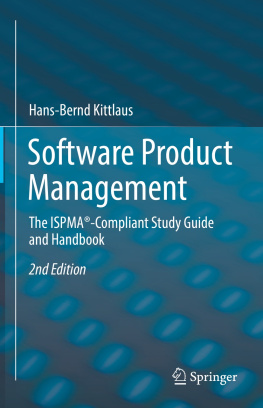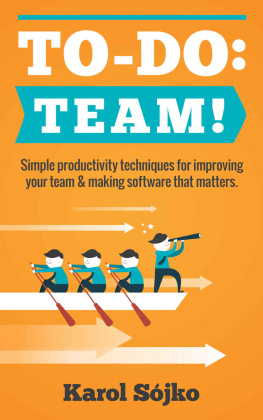Louis Testa - Growing Software: Proven Strategies for Managing Software Engineers
Here you can read online Louis Testa - Growing Software: Proven Strategies for Managing Software Engineers full text of the book (entire story) in english for free. Download pdf and epub, get meaning, cover and reviews about this ebook. year: 2009, publisher: No Starch Press, genre: Business. Description of the work, (preface) as well as reviews are available. Best literature library LitArk.com created for fans of good reading and offers a wide selection of genres:
Romance novel
Science fiction
Adventure
Detective
Science
History
Home and family
Prose
Art
Politics
Computer
Non-fiction
Religion
Business
Children
Humor
Choose a favorite category and find really read worthwhile books. Enjoy immersion in the world of imagination, feel the emotions of the characters or learn something new for yourself, make an fascinating discovery.

- Book:Growing Software: Proven Strategies for Managing Software Engineers
- Author:
- Publisher:No Starch Press
- Genre:
- Year:2009
- Rating:3 / 5
- Favourites:Add to favourites
- Your mark:
Growing Software: Proven Strategies for Managing Software Engineers: summary, description and annotation
We offer to read an annotation, description, summary or preface (depends on what the author of the book "Growing Software: Proven Strategies for Managing Software Engineers" wrote himself). If you haven't found the necessary information about the book — write in the comments, we will try to find it.
As the technology leader at a small software company, you need to focus on people, products, processes, and technology as you bring your software to market, while doing your best to put out fires and minimize headaches.
Growing Software is your guide to juggling the day-to-day challenges of running a software company while managing those long-term problems and making sure that your business continues to grow. With practical, hands-on advice, Growing Software will teach you how to build and lead an effective team, define and sell your products, work with everyone from customers to CEOs, and ensure high-quality results.
Instead of learning by trial and error, youll benefit from author Louis Testas 20+ years of management experience. Testa combines big-picture advice, specific solutions, and real-life anecdotes to teach you how to:
- Work effectively with your CEO and executive team
- Improve development team efficiency and enthusiasm
- Evaluate your software methodology to improve effectiveness and safeguard against failure
- Use product prototypes to bridge the gap between marketing and engineering
- Defuse technology time bombs
Whether youre new to managing software or newly lost, Growing Software will help you and your growing company thrive.
Louis Testa: author's other books
Who wrote Growing Software: Proven Strategies for Managing Software Engineers? Find out the surname, the name of the author of the book and a list of all author's works by series.









